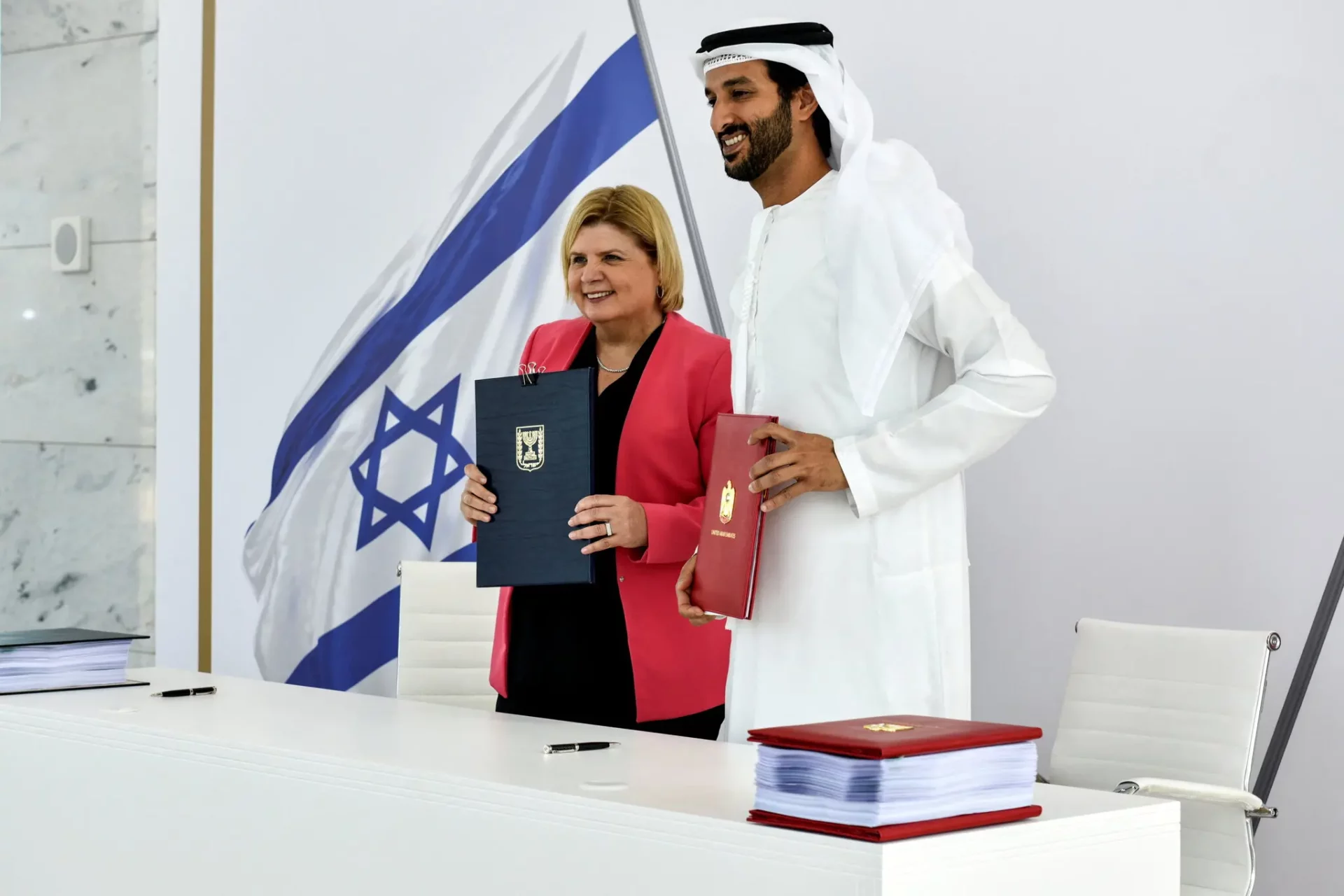Saudis positioning for next move as Israel, UAE sign free-trade pact, Emirati VC chief says
Trade agreement signed by Cabinet ministers in Dubai eliminates customs duty on 96% of goods traded between Israel and the Emirates, giving stimulus to business deals after Abraham Accords

GPO
Israeli Minister of Economy and Industry Orna Barbivai and Emirati Minister of State for Foreign Trade Thani Al Zeyoudi
The free-trade agreement signed yesterday between the United Arab Emirates and Israel is generating interest among investors in Saudi Arabia who are patiently making plans for the possibility their own government will soon normalize relations with the Israelis, an...










